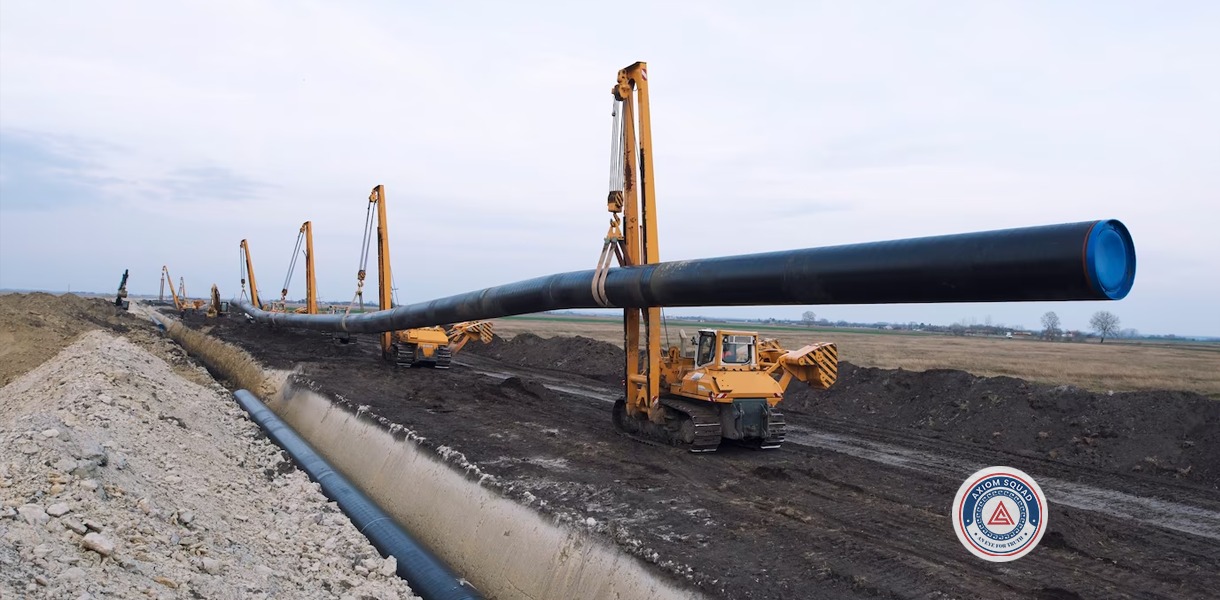
The Importance of Planning Pipeline Projects in India: Navigating Compliance, Land Acquisition, Community Relations, and Due Diligence
Pipeline projects are crucial for the transportation of oil, gas, and other resources in India. However, the successful execution of such projects requires a well-planned approach that takes into account the complexities of compliance, land acquisitions, community relations, due diligence, and other necessary prerequisites. In this informative blog, we will explore the significance of adopting a systematic approach and highlight the crucial role of multiple agencies involved in undertaking compliances, land acquisitions, community relations, due diligence, and other essential prerequisites when setting up pipeline projects in India.
Understanding the Regulatory Landscape
Setting up pipeline projects in India requires a comprehensive understanding of the regulatory landscape. The Petroleum and Natural Gas Regulatory Board (PNGRB) is the primary regulatory authority responsible for granting authorizations, ensuring compliance, and overseeing pipeline networks' functioning. It is vital for project developers to familiarize themselves with the regulatory framework and engage with the PNGRB at an early stage during project planning.
Compliance with Regulatory Requirements
Pipeline projects in India must comply with various regulatory requirements, including environmental norms, safety standards, land acquisition procedures, and community engagement. Compliance with these regulations is crucial for the successful implementation of projects. Engaging with multiple agencies and conducting thorough compliance assessments ensures that the project meets all the necessary regulatory obligations.
Role of Multiple Agencies
• Environmental Agencies: Obtaining environmental approvals and clearances is essential for pipeline projects. Developers must conduct environmental impact assessments, develop comprehensive environmental management plans, and obtain clearances from agencies such as the Ministry of Environment, Forest and Climate Change (MoEFCC) and State Pollution Control Boards (SPCBs).
• Land Acquisition Authorities: Acquiring land for pipeline projects involves engagement with multiple authorities at the central, state, and local levels. Developers must navigate through the Land Acquisition Act, engage with local revenue and land acquisition departments, and address the concerns of affected landowners and communities. Clear communication and transparency are crucial in the land acquisition process.
• Community Engagement: Building positive relations with local communities is key to the successful implementation of pipeline projects. Developers must engage with local government bodies, such as municipal corporations, panchayats, and gram sabhas, to obtain necessary permissions, address community concerns, and ensure smooth project execution. Community engagement fosters trust, minimizes opposition, and paves the way for mutually beneficial outcomes.
• Safety Authorities: Ensuring the safety of pipelines and minimizing potential risks is paramount. Pipeline projects need to comply with safety regulations and guidelines set by the PNGRB, Directorate General of Hydrocarbons (DGH), and other safety authorities. Engaging with these agencies for inspections, risk assessments, and compliance verification is essential to maintain safe operations.
The Benefits of a Planned Approach: A planned approach in setting up pipeline projects in India offers numerous benefits:
• Compliance and Legal Certainty: A systematic approach ensures adherence to regulatory requirements, mitigating legal risks and providing certainty regarding compliance with established norms
• Efficient Project Execution: Engaging with multiple agencies early on helps identify potential bottlenecks, streamline processes, and facilitate efficient project execution, leading to timely completion.
• Positive Community Relations: Proactive engagement with local communities fosters positive relationships, builds trust, and enhances community acceptance of the project, minimizing opposition and delays.
• Environmental Sustainability and Safety: A planned approach ensures compliance with environmental norms and safety standards, protecting ecosystems, communities, and the integrity of the pipeline infrastructure.
Conclusion
A well-planned approach is imperative when setting up pipeline projects in India. Understanding the regulatory landscape, complying with regulatory requirements, engaging with multiple agencies, conducting due diligence, addressing land acquisition processes, and fostering positive community relations are vital for successful project implementation. By adopting a systematic approach and engaging with relevant stakeholders, pipeline project developers can navigate compliance complexities, build strong relationships, and contribute to the sustainable growth of India's energy infrastructure.






